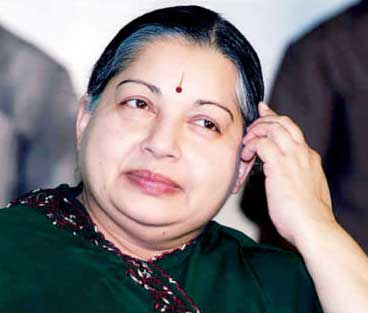The Supreme Court on Friday (8 January) said that it would hold, from February 2, the final hearing on Karnataka government’s appeal against the Karnataka High Court verdict acquitting Tamil Nadu Chief Minister J. Jayalalithaa in a corruption case. Directing the final hearing of the appeals by Karnataka and others on February 2, a bench of Justice Pinaki Chandra Ghose and Justice Amitava Roy said: “We will start the hearing from February 2 and will hear the matter on February 3 and 4 as well.” [Also see: Appeal against Tamil Nadu CM Jayalalithaa acquittal to be heard by SC in November.]
 The court gave both the sides two weeks time to flag the issues that they would like it to consider in the course of the hearing.
The court gave both the sides two weeks time to flag the issues that they would like it to consider in the course of the hearing.
The court gave two weeks more time as none of the parties had framed the issues in pursuance to the court’s November 23 order, saying that it would hold day to day hearing of the Karnataka’s appeal challenging the acquittal of Jayalalithaa and others by the high court.
The court had given the same liberty to senior DMK leader K. Anbazhagan and Bharatiya Janata Party leader Subramanian Swamy, who are complainant and intervener respectively in the case.
Karnataka had on June 23, 2015, moved the apex court challenging the high court’s May 11, 2015, verdict acquitting Jayalalithaa, her aide N. Sasikala Natrajan and her two relatives V N Sudhakaran and Elavarasi in disproportionate assets case.
The apex court on July 27, 2015, had issued notice on the petitions by Karnataka, Anbazhagan and Swamy challenging the acquittals.
Assailing the error in calculating the disproportionate assets of Jayalalithaa by the high court, the Karnataka government had contended that the reversal of the trial court verdict convicting Jayalalithaa has resulted in “miscarriage of justice”.
The Karnataka government in its petition had also said that besides other infirmities in the high court verdict, the “grave mistake” in total of 10 loans has “resulted in the acquittal (of Jayalalithaa and others) instead of an order confirming the conviction”.
Besides serious errors in the totalling of 10 loans by the high court, the Karnataka government had questioned whether Jayalalithaa’s appeal against trial court verdict convicting her and others in the case was maintainable without making it (Karnataka) a respondent.
The state government had contended that because Jayalalithaa, Sasikala and two others did not make the Karnataka government a party to the case, it could not appoint a public prosecutor to pursue the case and the state went unrepresented.
A trial court in Bengaluru had convicted Jayalalithaa on September 27, 2014, for possessing assets disproportionate to her known sources of income and sentenced her to four-year jail term and a Rs.100 crore fine. The case lasted for about 18 years.
The DA case against Jayalalithaa and three others related to the period from 1991 to 1996 when she became chief minister of Tamil Nadu for the first time, and involves a sum of Rs.66.65 crore. [Also see: Karnataka High Court constitutes Special Bench for Jayalalithaa assets case appeal.]

